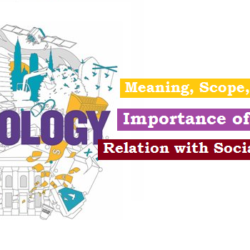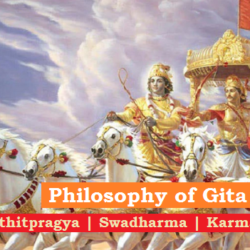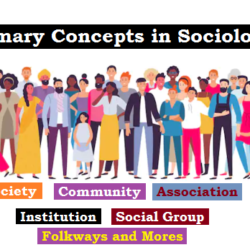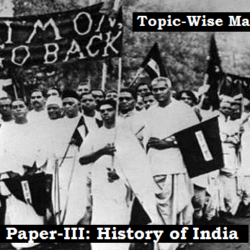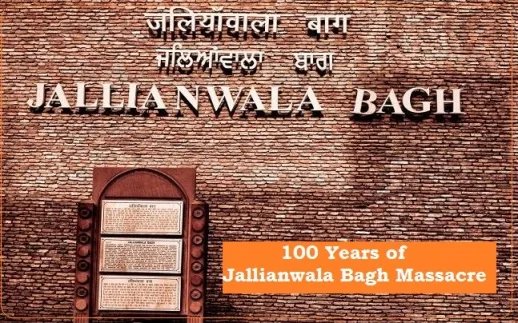
The Jallianwala Bagh massacre, also referred to as the Amritsar massacre, occurred on 13 April 1919. On this day, a massive crowd assembled at Jallianwala Bagh in Amritsar, Punjab, British India, during the annual Baisakhi festival. They gathered to protest against the repressive Rowlatt Act and the detention of pro-independence leaders, Saifuddin Kitchlew and Satyapal. Acting in response to this peaceful gathering, Brigadier General R. E. H. Dyer deployed troops from the Gurkha and Sikh regiments of the British Indian Army to encircle the crowd.
Protest Against Rowlatt Act:
- The act officially known as the Anarchical and Revolutionary Crimes Act, 1919 was passed in 1919 by the Imperial Legislative Council.
- It had authorized the British government to arrest anybody suspected of terrorist activities.
- It also authorized the government to detain such people arrested for up to 2 years without trial.
- It empowered the police to search a place without a warrant. It also placed severe restrictions on the freedom of the press.
- The primary intention colonial govt. was to repress the growing nationalist movement in the country.
- The British were also afraid of a Ghadarite revolution in Punjab and the rest of the country.
Jallianwala Bagh Massacre:
- The massacre took place on 13 April 1919 when troops of the British Indian Army under the command of Col. Reginald Dyer fired rifles into a crowd of Indians.
- The civilians had assembled for a peaceful protest to condemn the arrest and deportation of two national leaders, Satya Pal and Saifuddin Kitchlew.
- Dyer without warning ordered his troops to fire at the unarmed crowd which included children as well.
- The indiscriminate firing went on for about 10 minutes which resulted in the deaths of at least 1000 people and injured more than 1500 people.
Aftermath:
- In protest against the massacre Rabindranath Tagore gave up his knighthood.
- Gandhiji relinquished his title ‘Kaiser-e-hind’ bestowed on him by the British for his services during the Boer War in South Africa.
- Michael O’Dwyer, the then Lieutenant-Governor of Punjab, who had approved the actions of Dyer, was assassinated by Udham Singh in London in 1940 as revenge against the massacre.
Hunter Commission:
- In October 1919 the Secretary of State for India, Edwin Montagu, ordered the formation of a committee of inquiry into the events in Punjab.
- Referred to as the Disorders Inquiry Committee, it was later more widely known as the Hunter Commission (Not to be confused with Hunter Education Commission).
- Still there are long-standing demands in India that Britain should apologize for the massacre.
UK PM Repeats ‘Deep Regret’ for Jallianwala Bagh Massacre: 10 April, 2019
- UK Prime Minister Theresa May reiterated the UK government’s long-standing expression of ‘deep regret’ over the April 1919 Jallianwala Bagh massacre, calling it a ‘shameful scar’ on British Indian history.
- Since 2019 was the centenary of the horrendous act there was a growing demand from many quarters for the formal apology including Indian diaspora and Jeremy Corbyn (Opposition Leader of the Labour Party).
- Earliar the government of Punjab has sought an apology from the British government for the Jallianwala Bagh massacre.
Attempt the following quiz with objective questions from various examinations on Jallianwala Bagh Massacre.
Please fill your name (mandatory) and email id to start the Quiz.
You must specify a text. | |
You must specify a text. |

 Home
Home Syllabus
Syllabus Contact Us
Contact Us
